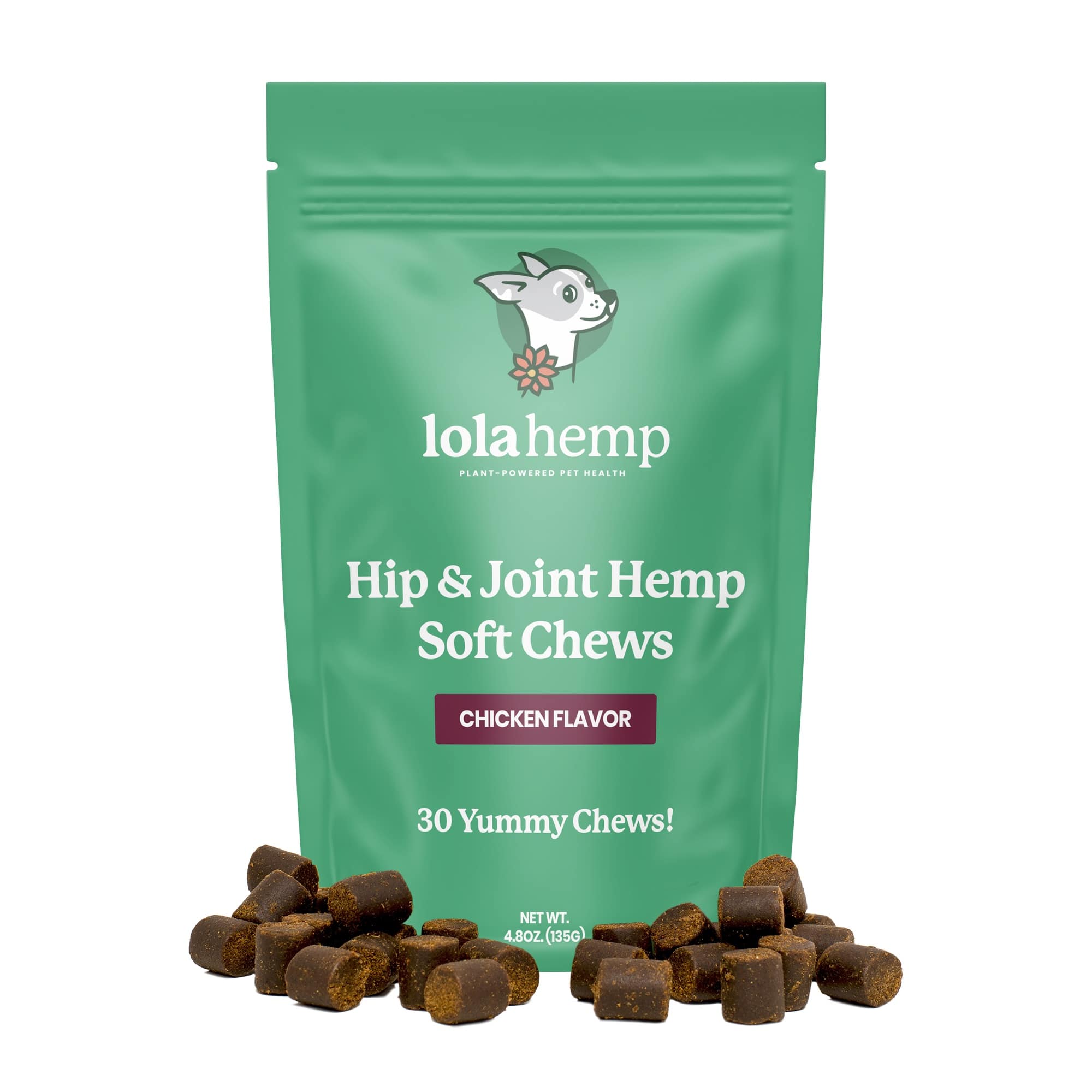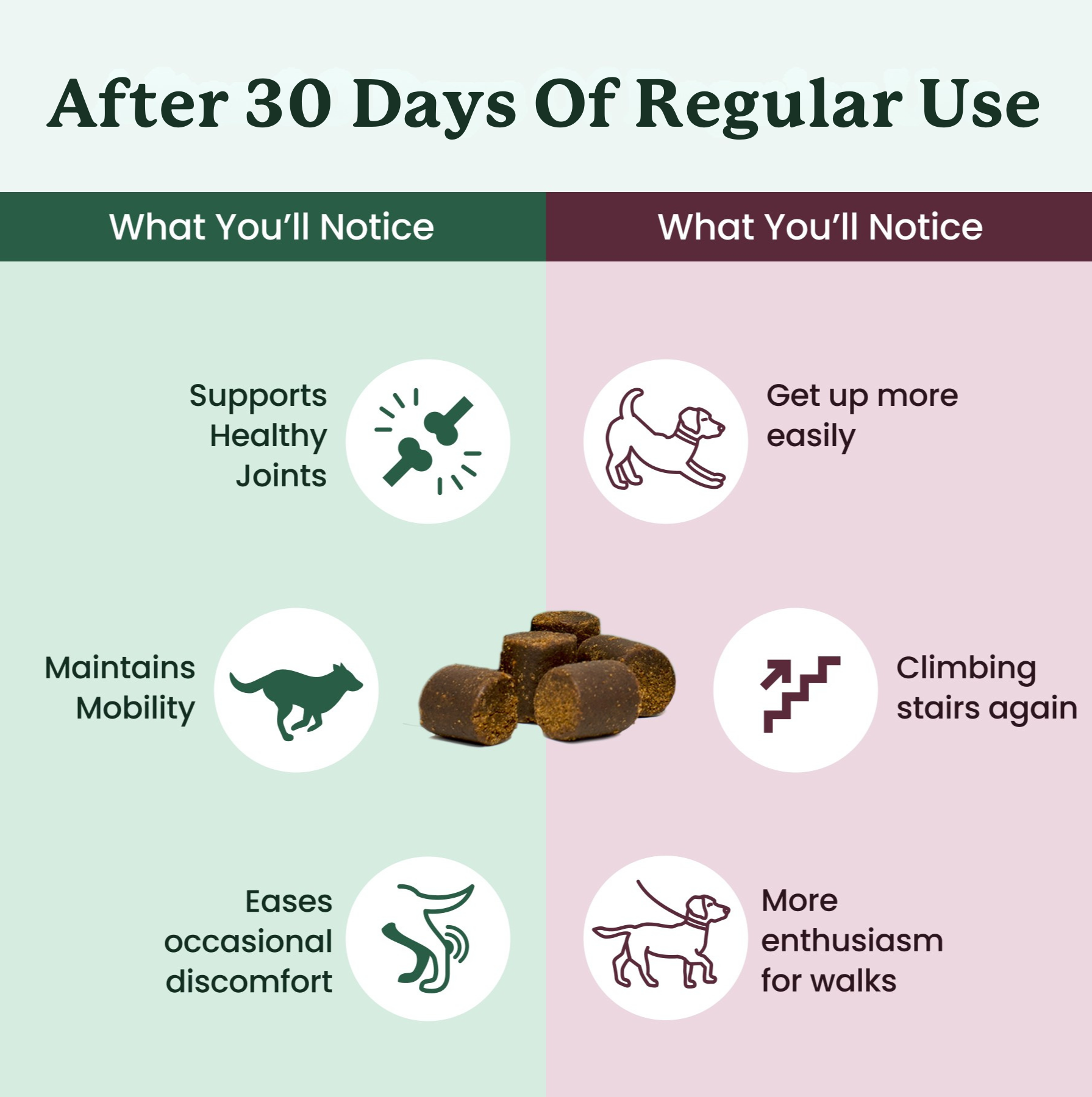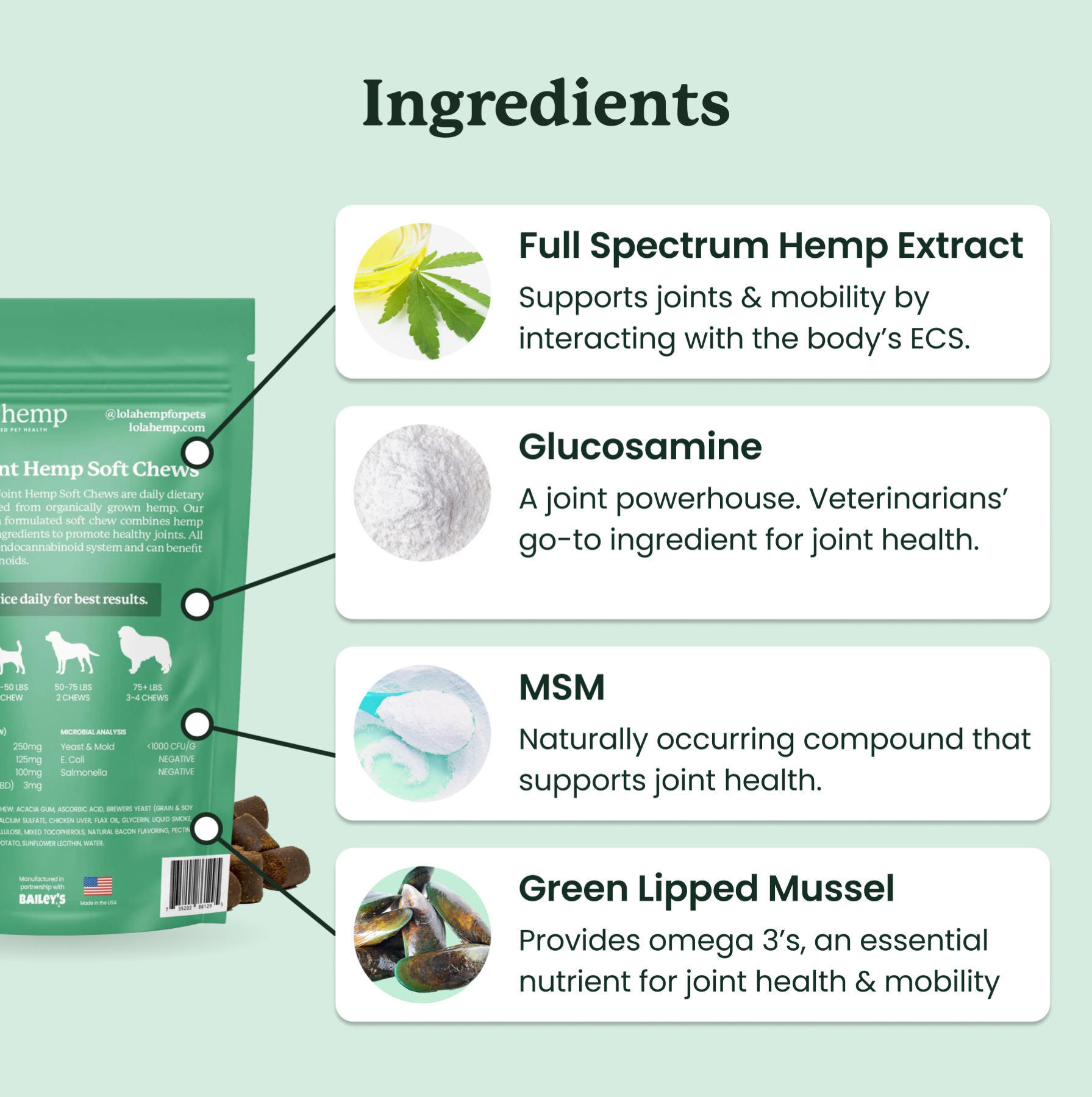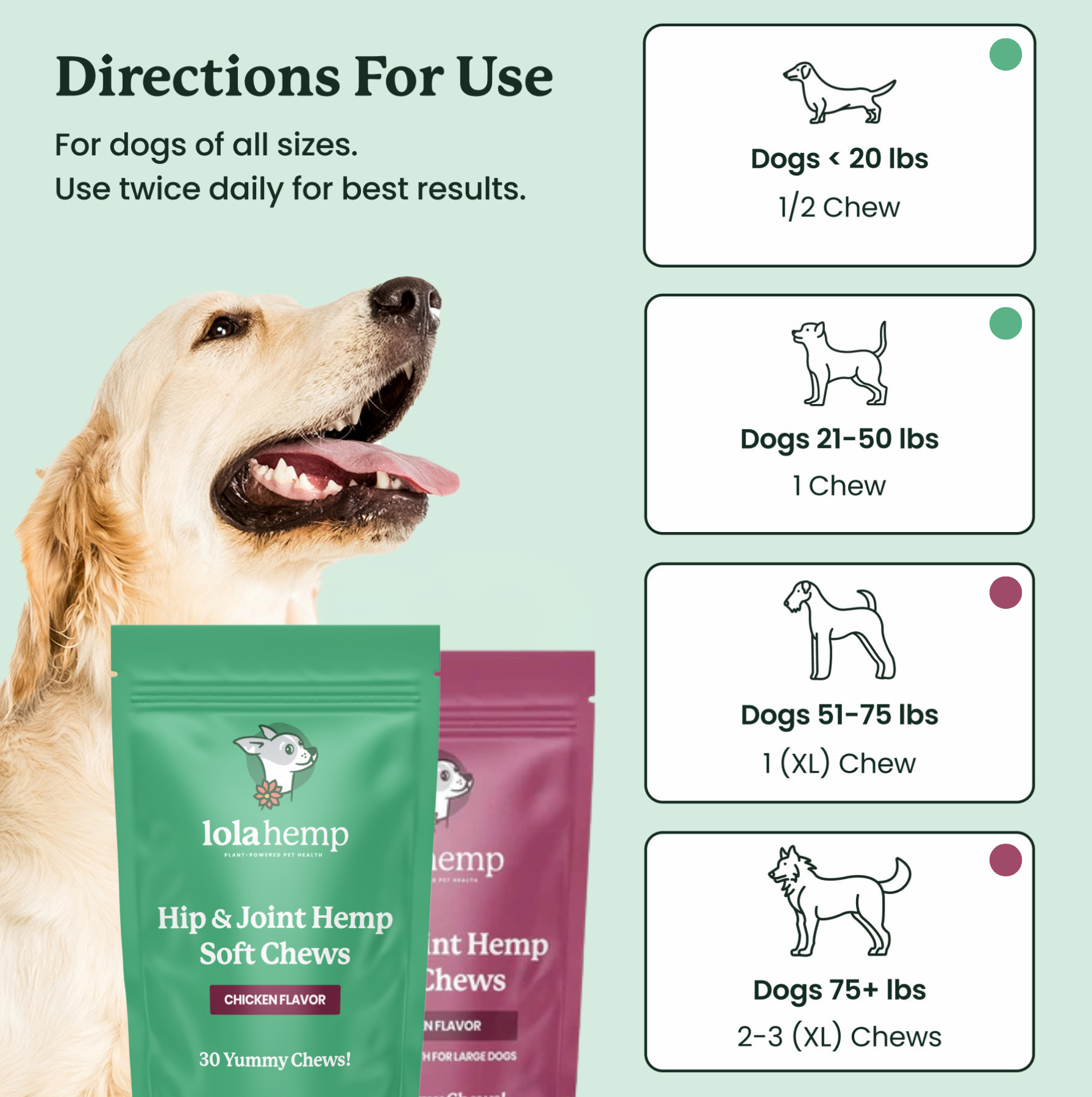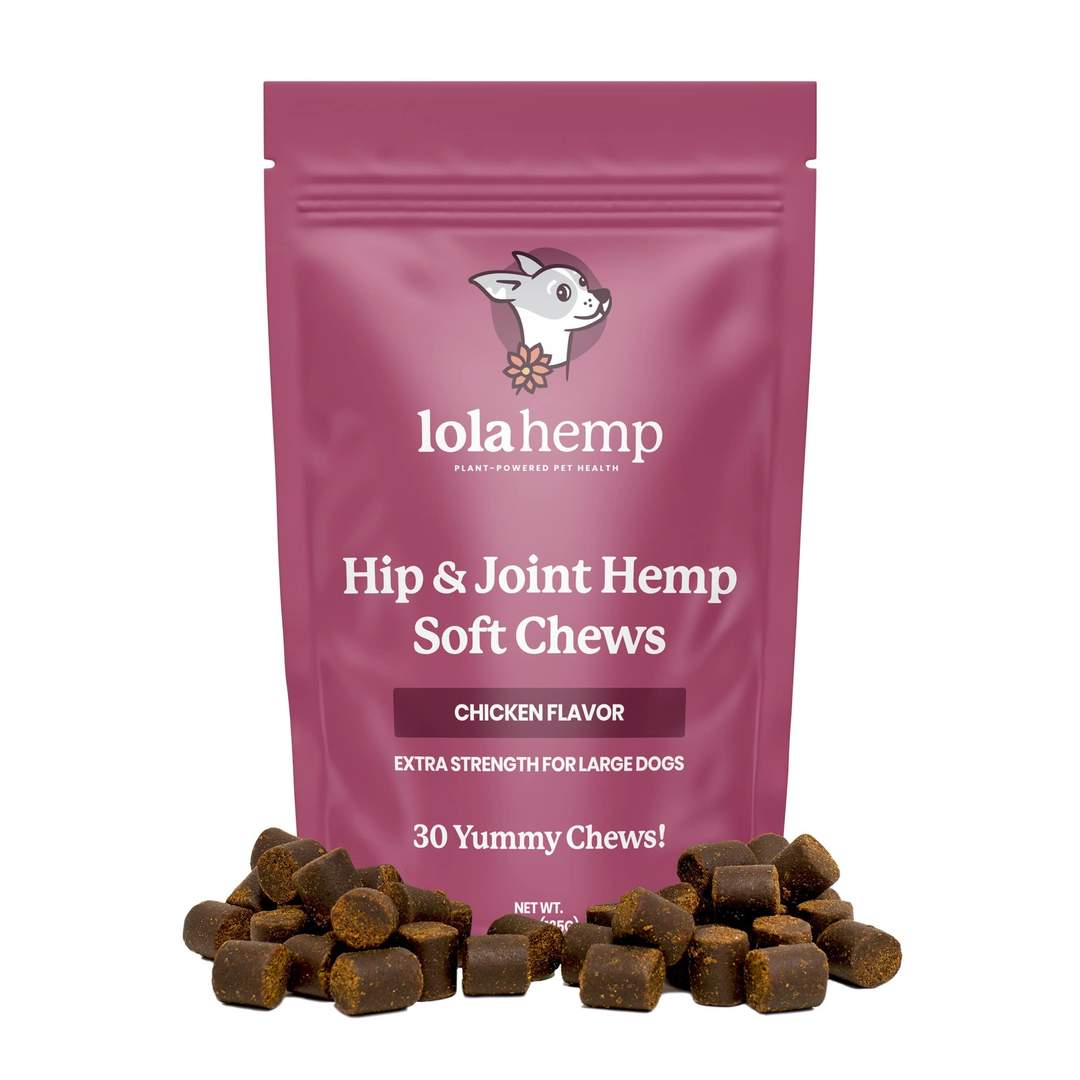Many dog owners have yet to discover the benefits of chondroitin and glucosamine for dogs. If your dog experiences issues like joint pain, canine osteoarthritis, and eye problems, these natural compounds may offer much-needed support.
Sadly, nearly all dogs suffer from joint problems such as canine arthritis at some point in their life. The gradual buildup of joint inflammation and pain can take a toll on your dog’s ability to take part in activities like rolling over, sitting, and shaking. Such problems don’t have to rob your canine companion of their precious playtime.
In this article, we’ll discover how chondroitin and glucosamine can help your dog, whether these natural supplements have any side effects, and the signs of joint pain that might signal the need for supplementation.

- What Is Chondroitin?
- The Use of Chondroitin for Dogs
- Are There Any Side Effects Associated with Using Chondroitin Sulfate for Dogs?
- What You Need to Know About Chondroitin Joint Supplements
- Signs That Your Dog is Suffering from Joint Pain
- Glucosamine for Dogs
- The Right Glucosamine & Chondroitin Dosage to Use
- Conclusion
- Frequently Asked Questions About Chondroitin and Glucosamine for Dogs
- 1. What do chondroitin and glucosamine do for dogs?
- 2. Are chondroitin and glucosamine safe for all dogs?
- 3. How long does it take to see results from chondroitin and glucosamine?
- 4. Can I give both chondroitin and glucosamine together?
- 5. What are common side effects of chondroitin and glucosamine in dogs?
What Is Chondroitin?
Chondroitin is a compound that naturally exists in the bodies of both humans and dogs. It’s a major component of cartilage and helps joint fluid absorb into connective tissue. Therefore, chondroitin plays a significant role in producing new cartilage and may even block enzymes that break it down.
The Use of Chondroitin for Dogs
Chondroitin supplements may support your dog’s joint health. They are often paired with MSM and glucosamine. These compounds protect chondrocytes (cells that produce joint collagen) and act as cushions for the joints.
What are The Benefits of Chondroitin for Dogs?
- Promotes bone and joint health
- Provides support during occasional discomfort from joint pain
- Supports eye function and health
- Maintains normal bladder health and control
Promoting Bone and Joint Health
Chondroitin may help relieve discomfort from normal exercise and activity. It can promote flexibility, mobility, and help slow the progression of osteoarthritis by supporting cartilage production.
Supporting Eye Function and Health
Chondroitin is sometimes included in eye drops to support hydration and recovery after cataract surgery. Always consult your vet before using chondroitin-based eye support.
Maintaining Normal Bladder Health and Control
Chondroitin helps strengthen connective tissue in the urinary tract and bladder, potentially supporting conditions like interstitial cystitis or overactive bladder.
Are There Any Side Effects Associated with Using Chondroitin Sulfate for Dogs?
Chondroitin is naturally occurring and typically safe. In excess, it can cause mild gastrointestinal issues like gas or loose stool. If your dog has liver or kidney disease, use under veterinary supervision.

What You Need to Know About Chondroitin Joint Supplements
Chondroitin is best administered via supplements, often derived from animal cartilage (bovine, pig, or shark). Many formulations combine chondroitin with glucosamine. If your dog has a shellfish allergy, verify ingredient sources before use.
Signs That Your Dog is Suffering from Joint Pain
- Limping
- Irritability
- Stiffness
- Lethargy
- Loss of appetite
- Chewing or licking affected areas
These symptoms can indicate joint pain or osteoarthritis. Consult your vet for diagnosis and to discuss supplements, diet, or other therapies.
Other Dog Joint Supplements That May Offer Support
- CBD Soft Chews
- Calcium
- Omega-3s
- Collagen
- Glucosamine
CBD oil, calcium, omega-3s, and collagen may further support joint mobility and inflammatory balance. Combining these supplements under veterinary guidance may enhance joint support.

Glucosamine for Dogs
Glucosamine is another key compound for joint health, often paired with chondroitin. It’s a sugar-amino acid that helps maintain cartilage, lubricates joints, and supports flexibility.
When to Use Glucosamine Supplements for Dogs
- Improving joint health and mobility
- Supporting normal inflammatory responses
- Promoting comfort and overall health in aging dogs
Do Glucosamine Supplements Have Any Side Effects?
Glucosamine is safe when used correctly but may cause fatigue, thirst, or mild stomach upset if overused—especially in dogs allergic to shellfish.
The Right Glucosamine & Chondroitin Dosage to Use
Glucosamine Dosage
- 250–500 mg for dogs 5–20 lbs
- 500 mg for dogs 20–45 lbs
- 1000 mg for dogs 45–90 lbs
- 1500 mg for dogs 90+ lbs
Chondroitin Dosage
- 900 mg for dogs under 80 lbs
- 1800 mg for dogs over 80 lbs

Conclusion
Chondroitin and glucosamine can be powerful, natural allies in maintaining your dog’s joint health. Choose high-quality supplements, follow dosage guidance, and consult your veterinarian to create a joint care plan that supports your dog’s comfort and mobility long term.
Frequently Asked Questions About Chondroitin and Glucosamine for Dogs
1. What do chondroitin and glucosamine do for dogs?
They support cartilage production, lubricate joints, and promote flexibility while helping reduce normal joint discomfort.
2. Are chondroitin and glucosamine safe for all dogs?
Generally yes, but dogs with shellfish allergies or certain health conditions should use them only under veterinary guidance.
3. How long does it take to see results from chondroitin and glucosamine?
Most dogs show improvement within 4–8 weeks of consistent daily supplementation.
4. Can I give both chondroitin and glucosamine together?
Yes. They’re commonly combined to enhance joint support and cartilage protection.
5. What are common side effects of chondroitin and glucosamine in dogs?
Minor effects include gas, loose stools, or fatigue. Reducing dosage usually resolves them.

